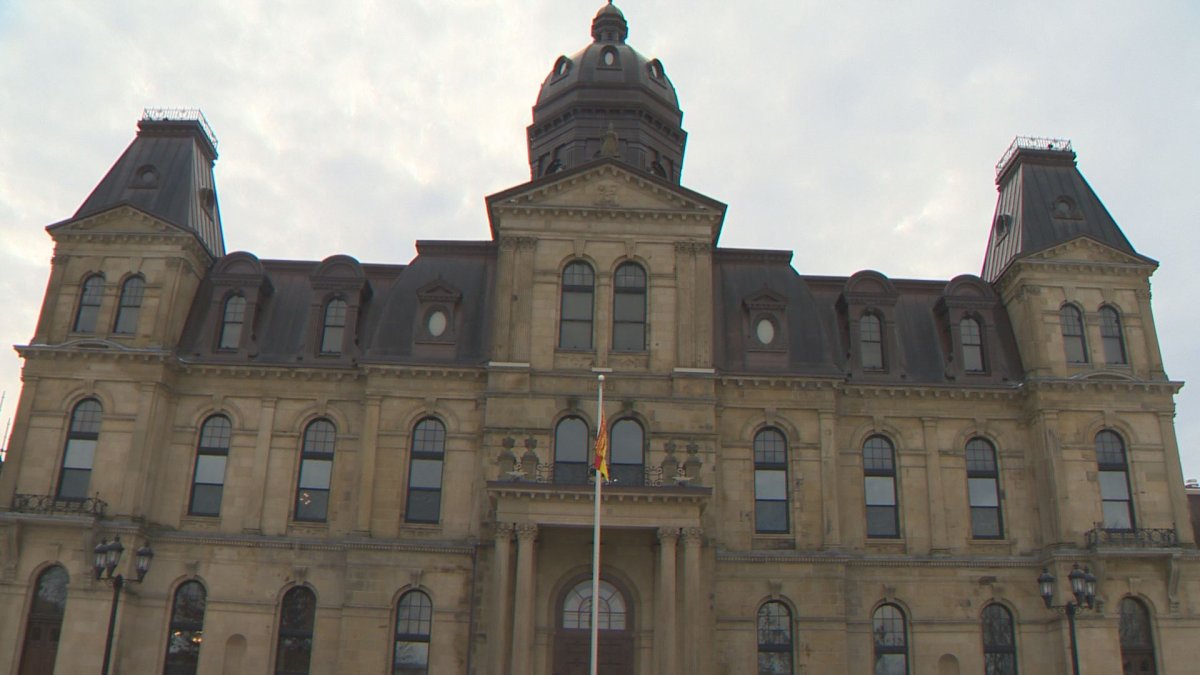The decision on whether New Brunswick will approve the use of hybrid sittings of the legislative assembly has been delayed once again.

Debate on a government motion that would have approved the use of hybrid technology for sittings of the assembly timed out on Thursday afternoon before a vote could be held. The spring sitting of the assembly will end on Friday, not long after MLAs vote on the provincial budget, meaning further discussion on hybrid sittings will have to wait until May.
Liberal house leader Guy Arseneault pinned the lack of time for a vote on the government, saying that there aren’t enough sitting days to accomplish anything outside of government priorities.
“It’s very poor planning on how they handle their business,” Arseneault said.
Arseneault said it’s all too common for the government to use unanimous consent to rush pieces of legislation it deems urgent. On Thursday the government asked for and was granted unanimous consent to expedite third reading of Bill 45, which will allow voting to be suspended during the upcoming municipal elections in any zone that enters a lockdown prior to polling day.
As time for debate wound down, interim Liberal Leader Roger Melanson requested unanimous consent to either extend time for debate or move directly to a vote on the motion, but was denied.
In the limited time afforded to the motion, several MLAs weighed in with their feelings on hybrid sittings.
“This is about responding to the pandemic,” said Memramcook-Tantramar MLA Megan Mitton.
“This is not so we can arrange a dentist appointment, or a veterinary appointment, this is not for staying home so we can stay in our pyjamas and not work. That’s not what this is about at all. This about ensuring that we can work, we can participate.”
The spring sitting is the first since the pandemic arrived last March not to be interrupted by an outbreak somewhere in the province and MLAs have been discussing hybrid systems in a variety of committees since last spring.
The technology for a hybrid system was rented following an interruption of the fall sitting in December 2020 and has been used regularly for committee work. Party leaders agreed in December that they would make use of the system, but when the assembly returned after a two-week hiatus, all MLAs were present in person, including those from the Saint John area that stood at the orange alert level.
Education Minister Dominic Cardy told reporters that he opposed hybrid sittings and would have withheld the unanimous consent needed to make use of the system on short notice. Most motions require a period of notice before they can be debated and voted upon, but that requirement can be dispatched with the agreement of every MLA.

“The legislature is a place where people stand face to face, engage, discuss, deal with each other, compromise — you can’t do that online,” Cardy told reporters on Dec 8.
“The more that we move to take away authority from the legislature floor the more that we take power away from the hands of legislatures and place them in the hands of party leaders, premiers’ offices, prime ministers’ offices.”
On Thursday, People’s Alliance Leader Kris Austin echoed some of Cardy’s concerns about what is lost when lawmakers can’t meet face to face but said he supports having the hybrid system ready in case of an emergency.
“To hear from others on their ideas — I mean that’s the way democracy is supposed to function. My concern is that you lose that when you move to hybrid sittings,” Austin said.
“You don’t have the opportunity to step aside with other members and to try and figure out the intent of a bill or the intent of a motion and some of the pros and cons that go with it.”
The government motion would see the hybrid system expire when the state of emergency order is lifted, but both the Liberals and the Greens have advocated for it to remain an option for other situations. Those instances include extreme weather events, illness or when MLAs become new parents.
Mitton tabled an amendment Thursday that would extend the life of the system to the end of the 60th session of the legislature, but time expired before a vote could be held.
The issue has flared up continually since December. In February, opposition MLAs prevented the government from expediting the passage of several bills in an attempt to force a debate on hybrid sittings. At the time, government house leader Glen Savoie said the most appropriate place to have that discussion was in the standing committee on procedures, privileges and legislative officers, not the assembly itself.
“The opposition is trying to make this a very simple thing, which it is not. We’re talking about the fundamental rights and privileges of members,” Savoie said on Feb. 12.
“Ultimately, it’s not as easy a putting a motion on the floor because putting a motion on the floor and voting on it doesn’t put any parameters around things necessarily, you don’t have any of the details that would be required to move forward.”
Soon after, Green Leader David Coon tabled a motion in that committee to study the issue and after it was punted twice to future meetings, MLAs gathered on March 10 to discuss a report prepared by the clerk on how other jurisdictions have handled hybrid sittings. At that meeting, government MLAs used their majority on the committee to punt further consideration of the issue back to the legislative assembly without any recommendations.
The slow pace of discussion on the subject runs counter to comments made by Premier Blaine Higgs in February, when he told reporters that he wanted to have an emergency system in place before the budget to prevent outbreaks from getting in the way of the work of lawmakers.
“Not being able to conduct the business of the province is not an option,” Higgs said on Feb. 12.




Comments